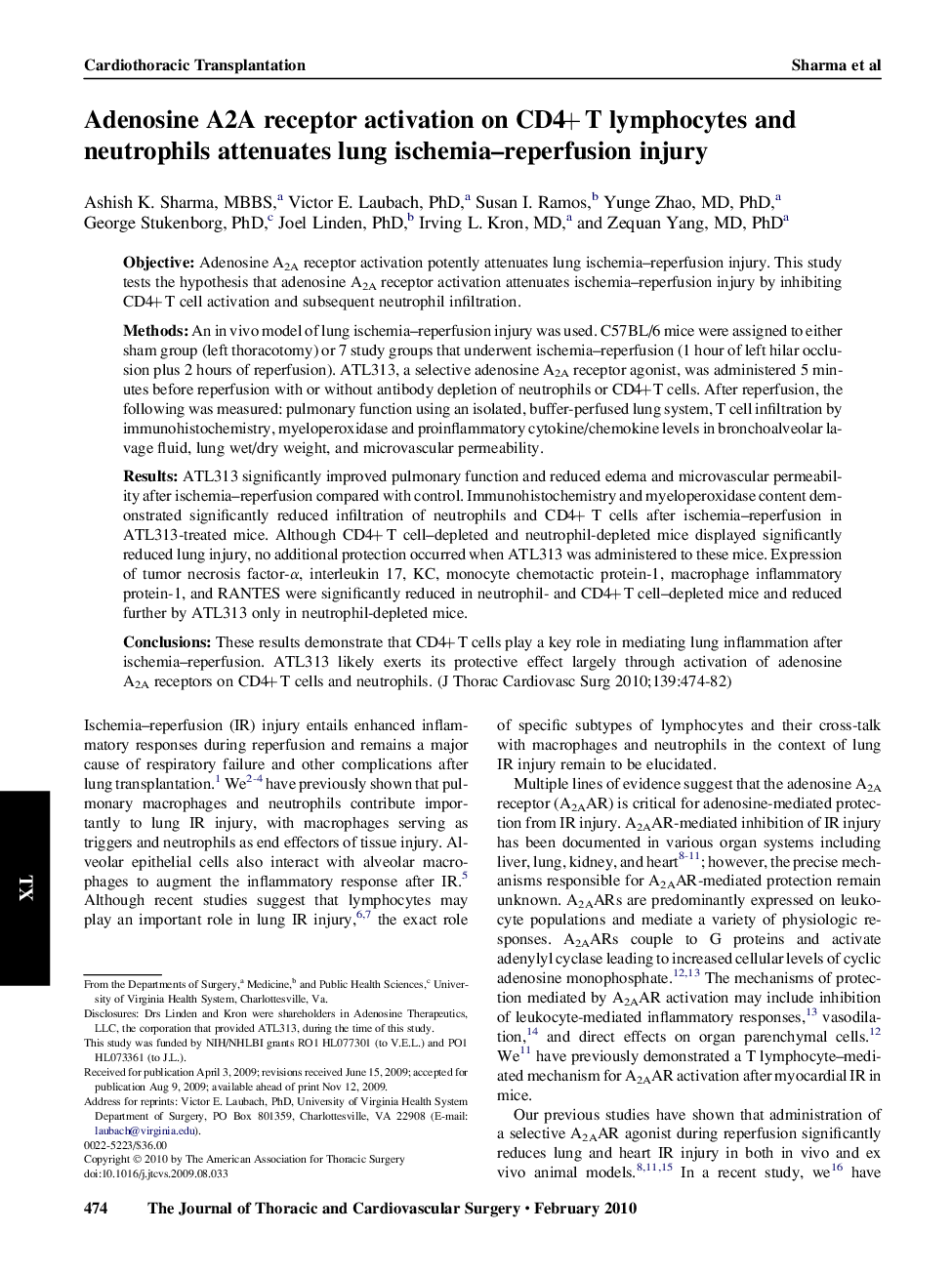| Article ID | Journal | Published Year | Pages | File Type |
|---|---|---|---|---|
| 2984566 | The Journal of Thoracic and Cardiovascular Surgery | 2010 | 9 Pages |
ObjectiveAdenosine A2A receptor activation potently attenuates lung ischemia–reperfusion injury. This study tests the hypothesis that adenosine A2A receptor activation attenuates ischemia–reperfusion injury by inhibiting CD4+ T cell activation and subsequent neutrophil infiltration.MethodsAn in vivo model of lung ischemia–reperfusion injury was used. C57BL/6 mice were assigned to either sham group (left thoracotomy) or 7 study groups that underwent ischemia–reperfusion (1 hour of left hilar occlusion plus 2 hours of reperfusion). ATL313, a selective adenosine A2A receptor agonist, was administered 5 minutes before reperfusion with or without antibody depletion of neutrophils or CD4+ T cells. After reperfusion, the following was measured: pulmonary function using an isolated, buffer-perfused lung system, T cell infiltration by immunohistochemistry, myeloperoxidase and proinflammatory cytokine/chemokine levels in bronchoalveolar lavage fluid, lung wet/dry weight, and microvascular permeability.ResultsATL313 significantly improved pulmonary function and reduced edema and microvascular permeability after ischemia–reperfusion compared with control. Immunohistochemistry and myeloperoxidase content demonstrated significantly reduced infiltration of neutrophils and CD4+ T cells after ischemia–reperfusion in ATL313-treated mice. Although CD4+ T cell–depleted and neutrophil-depleted mice displayed significantly reduced lung injury, no additional protection occurred when ATL313 was administered to these mice. Expression of tumor necrosis factor-α, interleukin 17, KC, monocyte chemotactic protein-1, macrophage inflammatory protein-1, and RANTES were significantly reduced in neutrophil- and CD4+ T cell–depleted mice and reduced further by ATL313 only in neutrophil-depleted mice.ConclusionsThese results demonstrate that CD4+ T cells play a key role in mediating lung inflammation after ischemia–reperfusion. ATL313 likely exerts its protective effect largely through activation of adenosine A2A receptors on CD4+ T cells and neutrophils.
